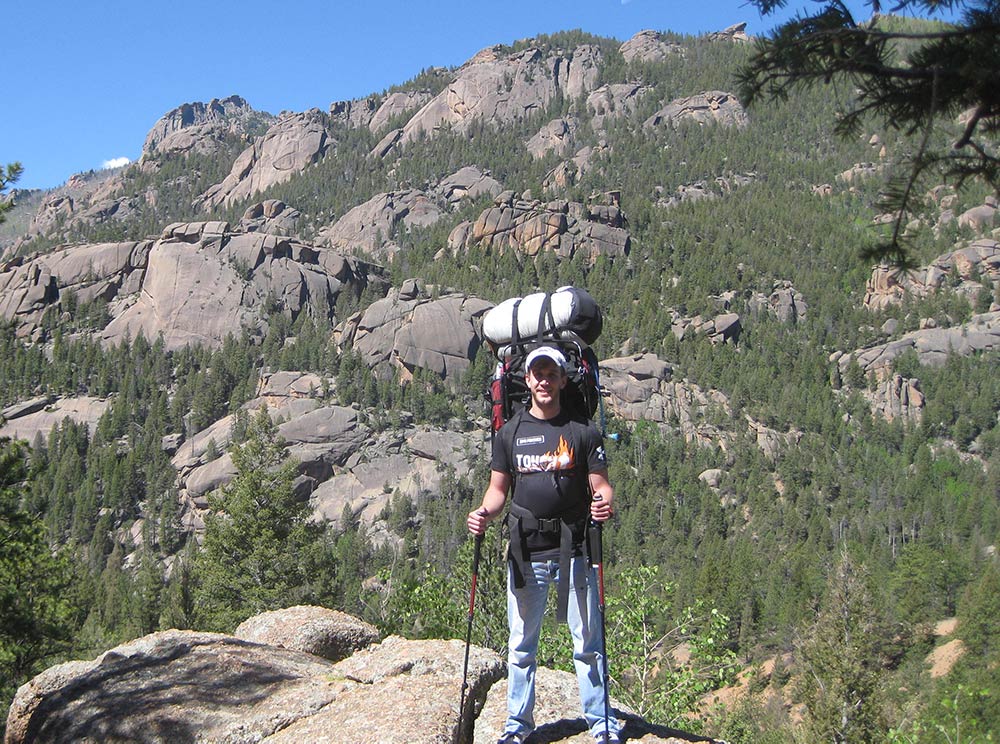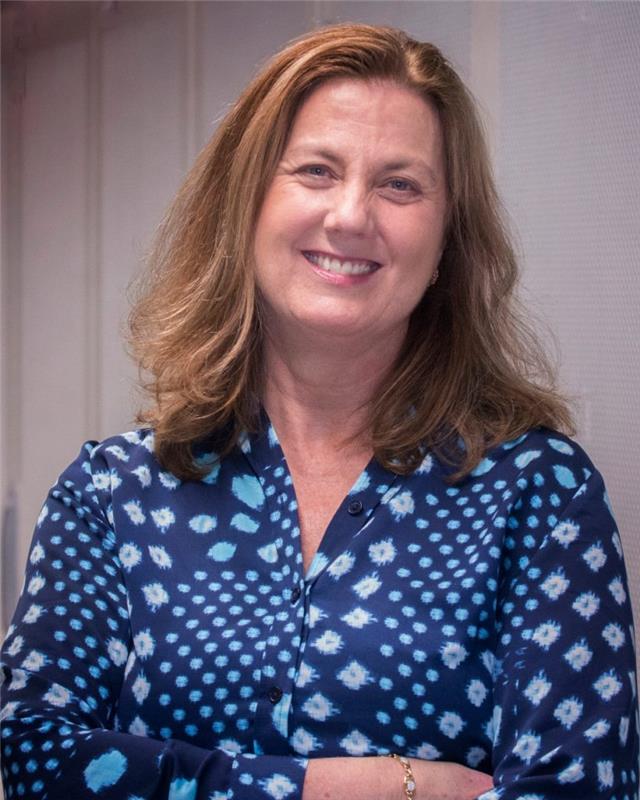
Assistantship helps grad student land supercomputing job with U.S. national lab
Posted on June 18, 2020John Leicht has always been driven by a desire to help others solve problems. Leicht, who graduated with a master’s degree in applied statistics in spring 2020, is now applying his skills to support computational scientists conducting work through the National Renewable Energy Laboratory, located in Golden, Colorado. Leicht said he gained the right experience for this position by completing a graduate assistantship with the Institute for Computational and Data Sciences (ICDS).
A native of Hermitage, Pennsylvania, Leicht always had a strong aptitude for mathematics. He came to Penn State to pursue a bachelor’s degree in physics and graduated in 2013.
With degree in hand, Leicht chose an altruistic path after college, joining the Peace Corps.
“I’ve been pretty fortunate in my life, so I wanted to give back,” he said. “I also wanted to travel and see something new, to put myself out there, outside of my comfort zone.”
As a Peace Corps volunteer based in Tanzania, Leicht was able to take his physics knowledge abroad. He taught advanced physics in high school, which he said was a challenge due to language barriers, but at the same time very rewarding.
When considering what his next step would be after the Peace Corps, Leicht was drawn to the idea of getting a graduate-level degree. So, from Tanzania, he enrolled in a few online statistics courses taught through Penn State World Campus, and he said something “just clicked” about statistics.
“I took a class and realized I liked statistics, so I committed to that,” he said. “I wanted to go back to Penn State, because Penn State has a highly ranked graduate program in statistics.”
In 2018, Leicht was admitted to the Master of Applied Statistics program at University Park. Through the program and through pursuing a graduate minor in Computational Science, Leicht got experience with programming for researchers and engineers, using languages such as R and C++.
While looking for financial support for his degree program, Leicht stumbled across a listing for a graduate assistantship in ICDS’s i-ASK Center. The i-ASK team provides support to thousands of Penn State researchers and students who use the Roar supercomputer.
Helping researchers from all skill levels troubleshoot supercomputing issues can be a challenging task, especially considering how large and complex ICDS-ACI is—it sports the processing power of more than 36,000 computers operating in tandem. The i-ASK Center fields questions from anyone using ICDS-ACI, which includes several thousand researchers from more than 70 Penn State departments. This requires a broad knowledge about many types of software packages, as well as an in-depth understanding of the ICDS-ACI system.
All i-ASK graduate assistants go through rigorous training to understand the finer details of how the supercomputer works and how users interact with the system. Leicht built his knowledge and honed his skills through hands-on experience helping researchers navigate technical issues—ranging from installing software packages to looking at parameters in code. Ultimately, Leicht, like others in the i-ASK Center, was able to help members of the Penn State research community successfully conduct their research on ICDS-ACI.
Leicht credits the i-ASK team—his supervisor, Lindsay Wells, Chad Franklin, systems administrator, and several other graduate assistants—for his ability to successfully hone his HPC-related skills.
“Lindsay is an amazing supervisor and Chad and the more seasoned GAs were a ton of help,” Leicht said. The i-ASK Center is a great working environment. I wouldn’t have been able to learn and grow if it weren’t for Lindsay, Chad and the other GAs.”
The assistantship piqued his interest in supercomputing in general and led him to apply for a user support technician position with NREL, he said.
“I’m so much more comfortable working with a terminal window in a Linux environment. I had a couple of classes related to using command-line prompt, working in a terminal window, but I’ve never used it to the extent that I used it as a GA. I think that’s a huge takeaway,” he said. “Essentially, the GA helped me land my job with the National Renewable Energy Lab. I couldn’t be happier for that.”
“HPC experience is a highly sought-after skill, and in less than a year, John developed his skills, which helped him land a job at a national lab,” said Wells, team lead of the ICDS i-ASK Center. “It seems like the perfect fit and opportunity for him, and we are all ecstatic for him.”
At NREL, Leicht will be supporting hundreds of researchers using the lab’s supercomputers for investigations related to hydrogen and fuel cells, advanced manufacturing, electrical grid optimization, renewable power and other energy-related research projects.
Leicht started his new position on June 1, and he is looking forward to the doors that the position will open for him.
“I want to continue to learn and grow, and to try to solve other people’s problems,” he said.
Any graduate student interested in applying for a graduate assistantship in the ICDS i-ASK Center can contact Lindsay Wells at lab396@psu.edu.
Share
Related Posts
- Professor receives NSF grant to model cell disorder in heart
- Featured Researcher: Nick Tusay
- Multi-institutional team to use AI to evaluate social, behavioral science claims
- NSF invests in cyberinfrastructure institute to harness cosmic data
- Center for Immersive Experiences set to debut, serving researchers and students
- Distant Suns, Distant Worlds
- CyberScience Seminar: Researcher to discuss how AI can help people avoid adverse drug interactions
- AI could offer warnings about serious side effects of drug-drug interactions
- Taking RTKI drugs during radiotherapy may not aid survival, worsens side effects
- Cost-effective cloud research computing options now available for researchers
- Costs of natural disasters are increasing at the high end
- Model helps choose wind farm locations, predicts output
- Virus may jump species through ‘rock-and-roll’ motion with receptors
- Researchers seek to revolutionize catalyst design with machine learning
- Resilient Resumes team places third in Nittany AI Challenge
- ‘AI in Action’: Machine learning may help scientists explore deep sleep
- Clickbait Secrets Exposed! Humans and AI team up to improve clickbait detection
- Focusing computational power for more accurate, efficient weather forecasts
- How many Earth-like planets are around sun-like stars?
- SMH! Brains trained on e-devices may struggle to understand scientific info
- Whole genome sequencing may help officials get a handle on disease outbreaks
- New tool could reduce security analysts’ workloads by automating data triage
- Careful analysis of volcano’s plumbing system may give tips on pending eruptions
- Reducing farm greenhouse gas emissions may plant the seed for a cooler planet
- Using artificial intelligence to detect discrimination
- Four ways scholars say we can cut the chances of nasty satellite data surprises
- Game theory shows why stigmatization may not make sense in modern society
- Older adults can serve communities as engines of everyday innovation
- Pig-Pen effect: Mixing skin oil and ozone can produce a personal pollution cloud
- Researchers find genes that could help create more resilient chickens
- Despite dire predictions, levels of social support remain steady in the U.S.
- For many, friends and family, not doctors, serve as a gateway to opioid misuse
- New algorithm may help people store more pictures, share videos faster
- Head named for Ken and Mary Alice Lindquist Department of Nuclear Engineering
- Scientific evidence boosts action for activists, decreases action for scientists
- People explore options, then selectively represent good options to make difficult decisions
- Map reveals that lynching extended far beyond the deep South
- Gravitational forces in protoplanetary disks push super-Earths close to stars
- Supercomputer cluster donation helps turn high school class into climate science research lab
- Believing machines can out-do people may fuel acceptance of self-driving cars
- People more likely to trust machines than humans with their private info
- IBM donates system to Penn State to advance AI research
- ICS Seed Grants to power projects that use AI, machine learning for common good
- Penn State Berks team advances to MVP Phase of Nittany AI Challenge
- Creepy computers or people partners? Working to make AI that enhances humanity
- Sky is clearing for using AI to probe weather variability
- ‘AI will see you now’: Panel to discuss the AI revolution in health and medicine
- Privacy law scholars must address potential for nasty satellite data surprises
- Researchers take aim at hackers trying to attack high-value AI models
- Girls, economically disadvantaged less likely to get parental urging to study computers
- Seed grants awarded to projects using Twitter data
- Researchers find features that shape mechanical force during protein synthesis
- A peek at living room decor suggests how decorations vary around the world
- Interactive websites may cause antismoking messages to backfire
- Changing how government assesses risk may ease fallout from extreme financial events
- Penn State’s Leadership in AI Research
- Symposium at U.S. Capitol seeks solutions to election security
- Using social media to solve social problems- study funded by ICS seed grant

